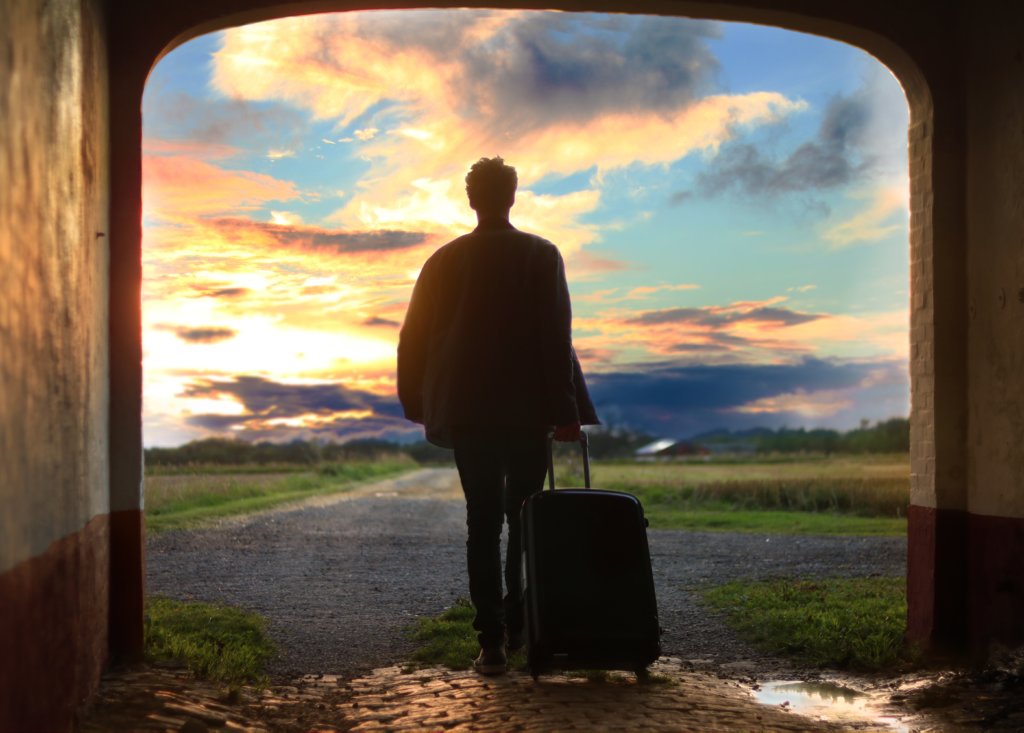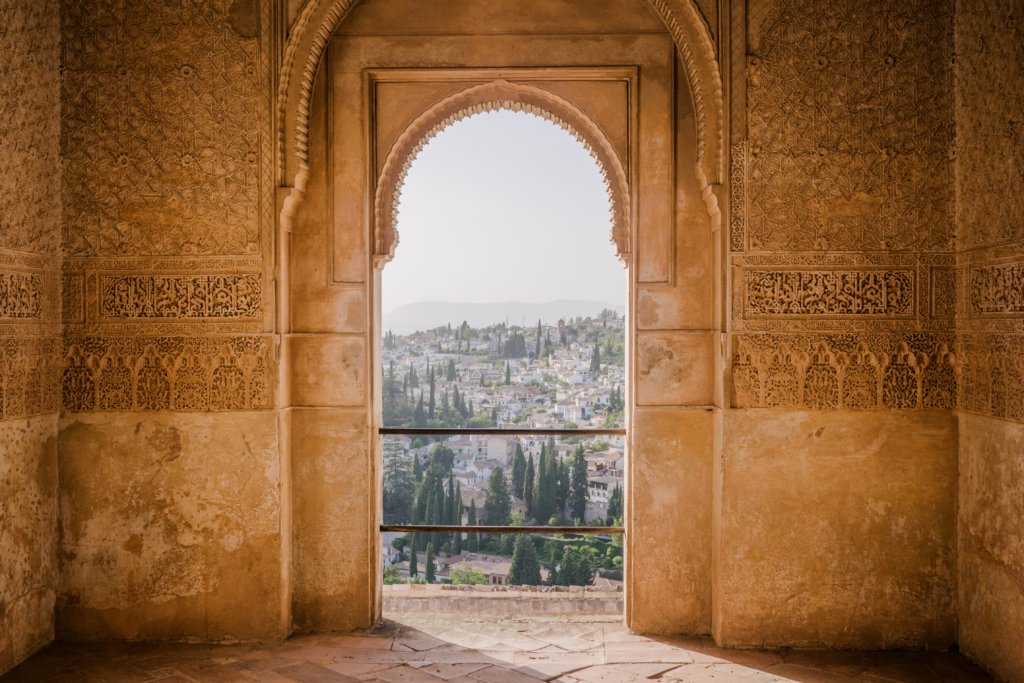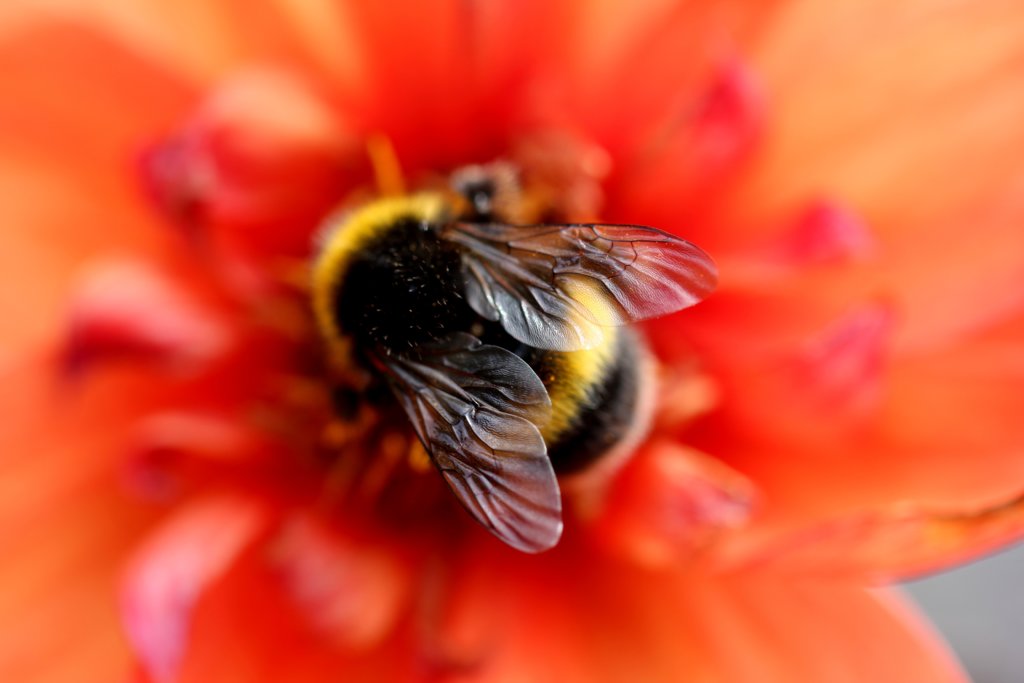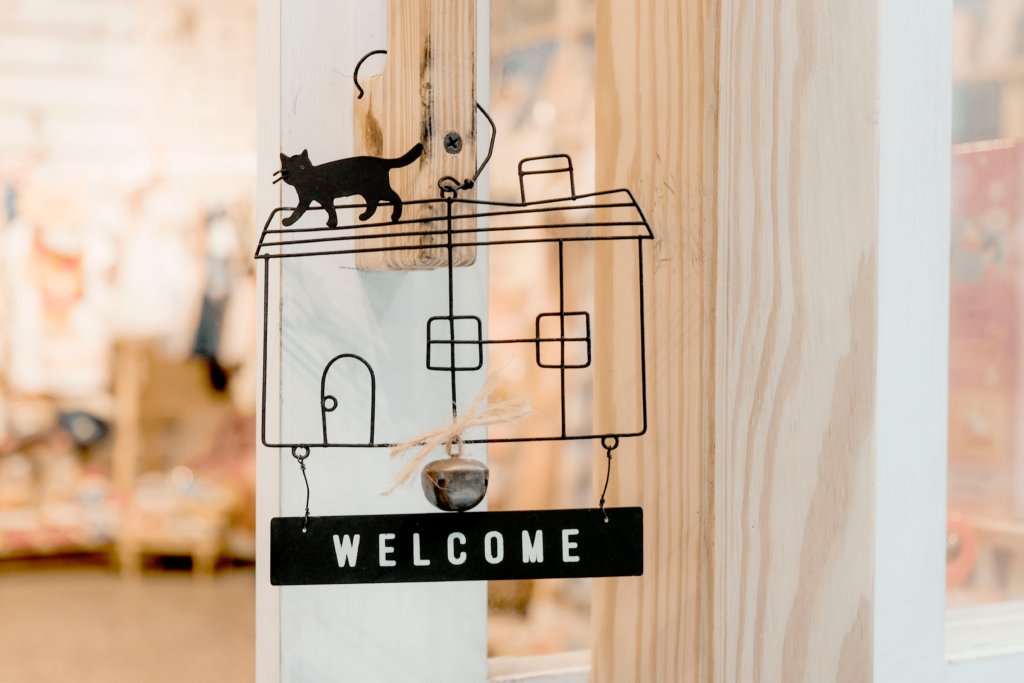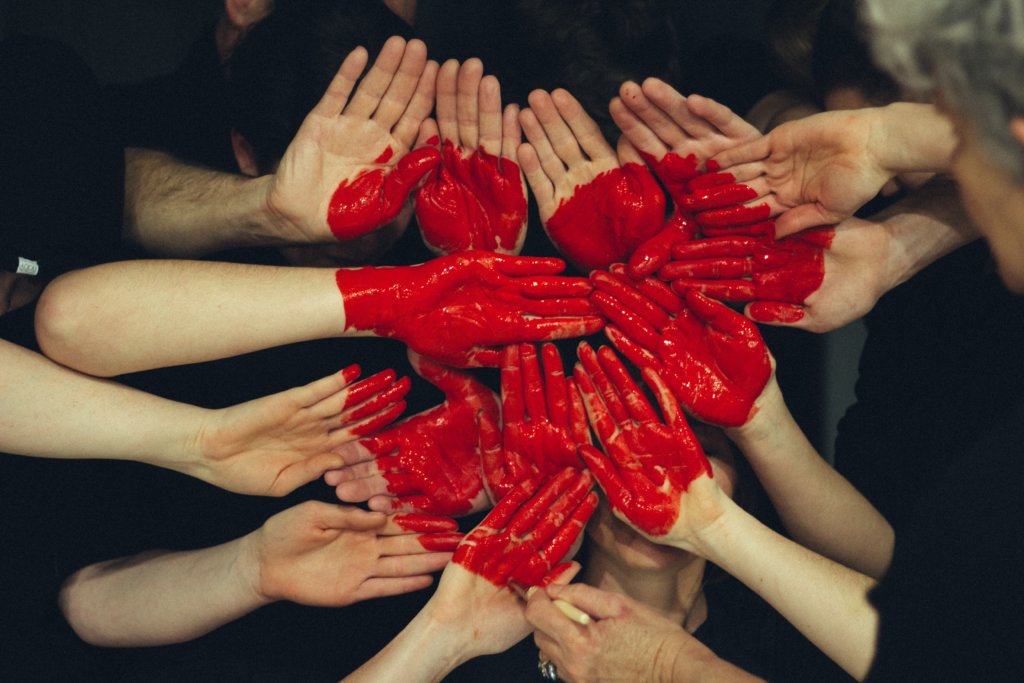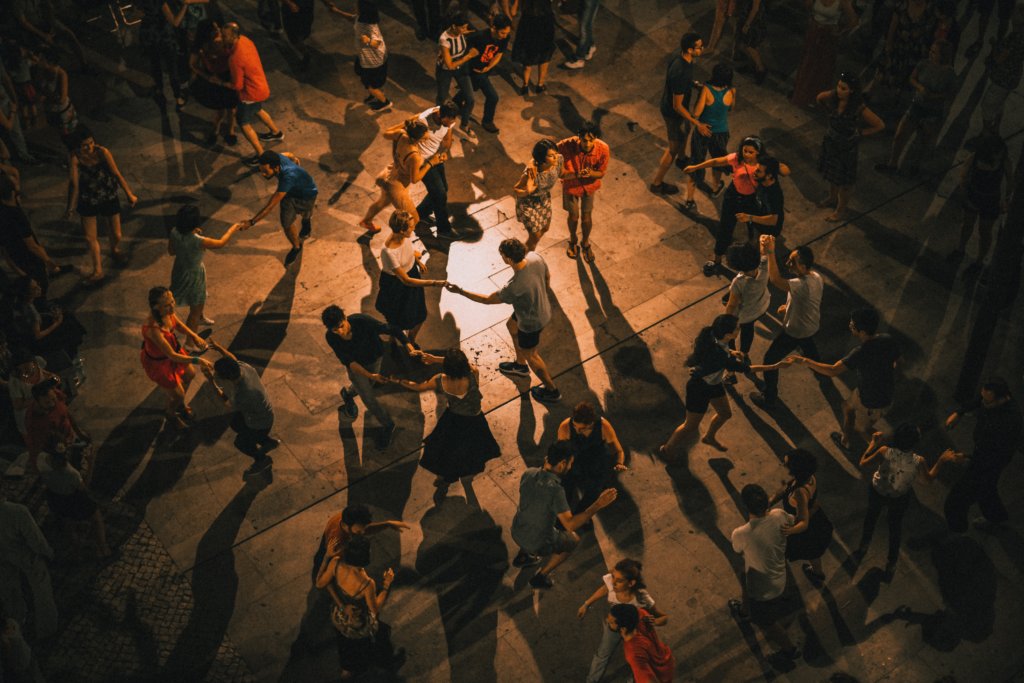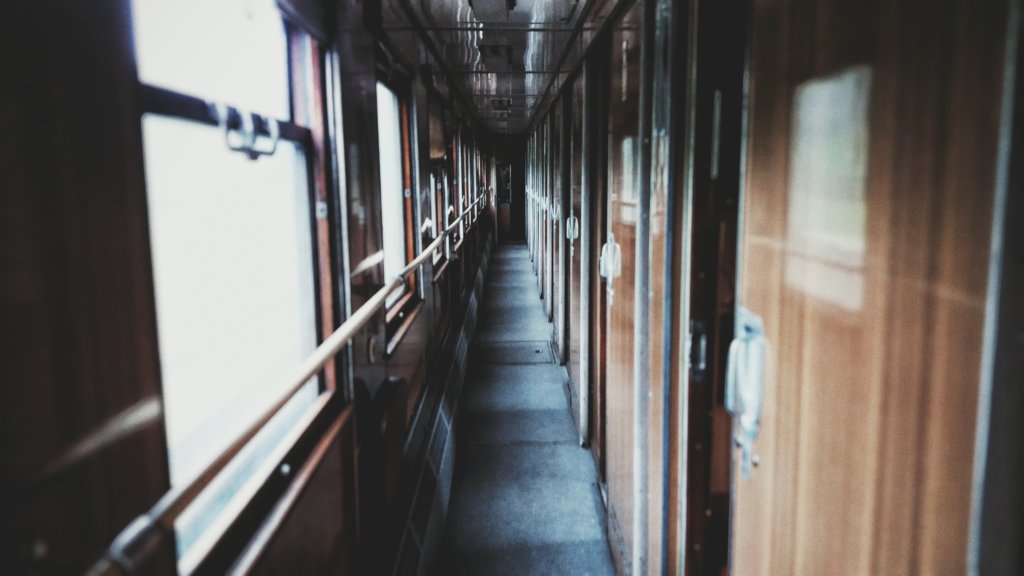This post is from June 2010 but it’s still relevant for me.
Future tripping: obsessing and worrying about the future. Playing the “what if” game. You would think this is my favorite game given how frequently I play it. I construct an entire sequence of events before they even occur. I’ve been doing that this week because I’m planning a 200-person retreat taking place at the end of this month. I’m thinking about, “Who will be the lunch in charge? Who will take care of the kids? What happens if so and so turns up? What happens if so and so doesn’t turn up?” There are sooo many things I’m contemplating and so many outcomes it’s making my head spin.
I also think about how futile the whole thing is. Months ago my friend L’s sister was in town and they invited me to go out to dinner with them. Because of the timing and the location of the restaurant it didn’t make sense for me to go home first. So I started planning and planning and planning. Ruminating on where I would go after work. What I would do with myself. If I would try to read a book or whether I would practice qigong. If I would wander around Chinatown. Where would I meditate. What would happen if I meditated at a temple and then walked around afterward. So many things! So many possibilities! And you know what happened? The night we planned to go out to eat L’s sister got sick and they canceled. They canceled! I spent all that time thinking about what I would do and then none of it took place! All of my worrying was completely fruitless.
It was a nice reminder for me to live in the moment and stay present. It was a nice reminder I’d rather deal with things as they come instead of counting my chickens before they hatch. Because the truth of the matter is I have no idea what’s up ahead. I have no idea what tomorrow brings or even what the next 10 minutes brings. And since I’ve redefined my concept of a higher power, I know that no matter what’s ahead it’s for my good. So why worry? Why plan my whole life in advance?
Some things, like this retreat, require planning. Otherwise we might be sitting around twiddling our thumbs, but honestly, I don’t have to plan everything. I don’t have to think about, “Well what if this happens? Or that happens?” If it happens it does and I’ll deal with it then. Be prepared, yes, but not obsessive. I think that’s the difference.
In the case of going out to dinner with L and her sister, bring a book but also see how I feel at the time. Prepare but allow for all possibilities. I want to allow myself to still deal with situations as they come up and not hold onto what I think will happen like a dog chewing a bone. There’s no need to constantly replay situations in my head like a CD stuck on repeat.
I dream of a world where we allow ourselves to stay present. A world where we take things as they come one day at a time. A world where we release our fear of the future and instead live in the moment. A world where we know what’s ahead is for our own self-realization and growth and so we sit back, relax, and enjoy the ride.
Another world is not only possible, it’s probable.
I experienced something this week that seems like a good metaphor for my life right now. On Thursday, I started to wash my clothes but noticed I didn’t have enough quarters to dry them as well. I decided to wash them anyway and hang everything up to dry. However, when I descended to the laundry room to acquire my clothes, I found them sitting in a pool of water — the washing machine hadn’t drained the water. Luckily, my landlord was onsite so I alerted him to the problem. He unplugged the machine, started it again, added more quarters to see if that made a difference — nada.
Defeated, I pulled my sopping wet clothes from the machine, leaving the lid up to broadcast to anyone else the washing machine’s malfunction. However, a short while later, my landlord knocked on my door and said he heard the washing machine start up again. He gave me three dollars in quarters to try my load once more. Not only did the machine work, but also I had an extra $1.50 in quarters to be able to dry my clothes. Huzzah! Things were difficult, but hardship paved the way for ease.
I’m hopeful the same will be true with other aspects of my life, particularly my career. I’m applying for jobs left and right, going on interviews, but still no offers on the table. It’s tough. It’s demoralizing. It’s not what I would call easy. But maybe the universe is constructing things so they will become easy. Perhaps the obstacles right now are also for my benefit.
My spiritual teacher says, “The path of spiritual excellence is strewn with numerous obstacles.” And also, “When one sets out to complete a great task, innumerable difficulties must be confronted. The greater the task, the mightier the obstacles.” I didn’t think the task of being employed would be so great, but it is because I’m not suited for every job and not every job is suited for me. That means a lot of hurdles to clear. The pot of gold at the end of the rainbow requires some legwork to find.
I can’t do more about my situation than I already am other than change my perspective. I can’t control what happens to me, but I can control what I think about it. Right now I’m choosing to believe this is all happening for a reason, and while it’s really not fun, eventually it will pan out and things will be easy. Until they’re hard again and then easy again and then hard again ad infinitum.
I dream of a world where things are hard at first and then they’re easy. A world where we see how even the difficult things lead to something easier down the road. A world where we understand everything slots together like a puzzle but we can’t see the whole picture yet until it’s finished.
Another world is not only possible, it’s probable.
The other day I fretted about my job situation, worried I won’t find another one, or I won’t find another one that I like, that suits me, etc. I applied some spiritual principles — mainly recognizing I’m not in control of this, but I have a higher power — and came to the conclusion my higher power is bigger than all of this.
When I think about myself and my situation it’s from a small and limited perspective. You could call it ego or fear, but regardless, it keeps me locked into limitation. It keeps me from believing in miracles and possibilities. That self is like Chicken Little, declaring the sky is falling because an acorn fell on her head. Did you know there are multiple versions of the Chicken Little story? In one version, Chicken Little and all her friends are lured to a fox’s den and never seen again. In another, they tell a king and the king reassures them the sky is not falling, plucking an acorn from Chicken Little’s head.
This story appeals to me right now because I see my situation as a fork in the road with different outcomes. I could be like Chicken Little and let my fear lead me to a metaphorical fox’s den where I’ll be devoured, or I could be like Chicken Little and let my fear lead me to a metaphorical palace where I’ll be reassured. My higher power is the royalty in this situation — bigger, more powerful, and thoroughly capable.
The other day I watched a movie about Henry VIII and Anne Boleyn. It reminded me back in the day royalty could accomplish the seemingly impossible. He wanted to marry Anne Boleyn so badly he created his own freaking church so he could divorce Catherine of Aragon. That may not seem like a big deal in this modern age where we can create a church in 10 minutes by purchasing a domain name on the internet, but back then? Unthinkable. Practically impossible. And he did it anyway. My higher power is not Henry VIII, but nonetheless, has royal qualities, which means my higher power can totally handle this job situation.
My higher power is bigger than me and thus capable of miracles. I’ve already been the recipient of miracles over and over again. In fact, I’m writing this blogpost from a miracle: my apartment. By all accounts this situation shouldn’t exist: I live alone in a quiet place that I can afford with laundry onsite and in a good location close to public transportation. In the Bay Area that’s like the Holy Grail. Can it be possible then my job will be similar? Sometimes I believe that and sometimes I don’t, but the more I remember my higher power is bigger than me, the more reassured I feel.
I dream of a world where we remember the divine is greater, more powerful, and more capable than we are. A world where we realize those qualities mean miracles can manifest in a multitude of ways. A world where we’re reassured by something bigger than us.
Another world is not only possible, it’s probable.
For the past few days I’ve been thinking about how I commemorate those who matter to me. How funny and appropriate that it should coincide with Memorial Day.
What kicked off the contemplation is a recent therapy session where I connected with the spirit of my maternal grandmother through a family constellation. We discovered on a subconscious level I thought the best way to commemorate my grandmother was to remember her suffering and pay attention to my own. That if I didn’t remember all the horrible things she and my other ancestors went through that they’d be forgotten. It doesn’t make sense on a rational level, but that’s the way it goes with beliefs sometimes.
During the session I came to realize the best way to honor my grandmother and everyone else is to live a joyful life. They didn’t go through hell for me to live in misery. They want me to be happy, to notice the good things, to live a better and easier life than they did.
As if to underscore the point, just before writing this post I had a baffling encounter. I visited with my next-door neighbor and their dog for a spell. When I re-entered my apartment, I walked to the bathroom to wash my hands. As I turned, I noticed something on my back. My heart leapt thinking a large spider crawled on me. When I peered closer, I determined it wasn’t a spider, it was a bumblebee. I spent literally one second outside crossing the threshold from my neighbor’s apartment into mine, and in that second, a bumblebee landed on me. Either that or my neighbor had a bumblebee in their house. Regardless, a strange event.
In shamanism, do you know what bumblebees represent? The honey or sweetness of life, of course. I’d like to believe the bumblebee showed up in an unusual way to emphasize the point. To say, “Yes, remember life is joyful, it’s sweet. Keep going in this direction. Remember good things and keep in mind positive outcomes are just as likely as negative ones.”
It’s not only the bumblebee delivering this message; it’s also numerous spiritual traditions around the world. The ancient Hindu scriptures, the Vedas, say, “This quinquelemental world has been born out of joy, is being maintained in joy, and into sacred joy will melt.” Yeah! Sign me up for that! In actuality, I don’t need to be signed up for anything because joy is already here whether I’m aware of it or not. What I’m working on these days is bringing joy out of my periphery and into the forefront. And I have that wish for everyone.
I dream of a world where we acknowledge suffering but also joy. A world where we feel into the notion that the world was born out of joy and unto joy we shall return. A world where we experience the sweetness of life.
Another world is not only possible, it’s probable.
One of the things I’m grappling with right now, as per usual, is acceptance. It’s easier for me to zoom ahead to the near-distant future when things are different. When I have a job again, when my body feels better. It’s much harder me to stay in the moment and accept my current reality. The present moment sucks sometimes. Who wants to accept something crappy? I sure don’t. However, I’m reminded, as I often am, of a passage from the Big Book of Alcoholics Anonymous on this topic:
“Acceptance is the answer to all my problems today. When I am disturbed, it is because I find some person, place, thing, or situation — some fact of my life — unacceptable to me, and I can find no serenity until I accept that person, place, thing, or situation as being exactly the way it is supposed to be at this moment. Nothing, absolutely nothing, happens in God’s world by mistake.”
Sometimes I believe that passage and sometimes I don’t. In a conversation with a friend she said sometimes she thinks life is drunk because things don’t make sense or they’re wacky. I agree. Life is weird. I’m not sure in this moment about the “no mistakes” thing. However, what I know to be true, is as much as I want things to change, they won’t unless I start where I am. For years I wanted to touch my toes, but I couldn’t. Every day I stretched my hamstrings a little farther, a little farther, and now I can touch my toes. But I had to accept my limitations in the moment of how far I could reach.
There’s something interesting for me in holding the paradox of where I am and where I want to be. Of accepting that I don’t like where I am and making an effort to be somewhere else. How do you hold those two places?
I looked up the definition of “accept” and one definition is “to receive.” I’m resonating with that word right now because a dear friend said to me the other day that I’m meeting myself. When I accept myself or my life circumstances, I’m receiving them, I’m meeting them, I’m greeting them. They become like a friend coming in out of a storm that I’m welcoming inside. There is no judgment, no sense of good or bad. Instead, there is neutrality and that’s exactly what I’m striving for right now. To let myself be what I am — no more and no less.
I can apply that mentality to circumstances as well. Do I like them? No. Can I receive them? Yes. To take the guest analogy further, guests are not residents — eventually they leave. Some guests stay longer than others, sure, but no one sticks around forever. And in the interim, what sort of host am I? I’d like to be the gracious and hospitable kind.
I dream of a world where we all practice acceptance. A world where we receive with hospitality all the “guests” that cross our threshold whether we invited them or not because sometimes we’re stuck with one another. A world where we realize nothing changes until we accept it first.
Another world is not only possible, it’s probable.
My body hurts. Not in a debilitating way. More like in a dull, aching, inflamed way. The pain reminds me my body is not a machine, despite my predilection to treat it that way. I have to admit I’m angry I can’t control my body; that it’s not doing what I want it to be doing. But when I dig a little deeper, I remember my body isn’t some irrational creature — rather it reacts to something. In my case, I’m realizing my body has stored trauma.
Dr. Bessel van der Kolk, an expert on trauma, has spent more than three decades working with trauma survivors. In The Body Keeps the Score, he uses scientific advances to show how trauma literally reshapes both body and brain, compromising sufferers’ capacities for pleasure, engagement, self-control, and trust. In essence, trauma is not only something that happens in the brain, but in the body.
I’ve spent many years unraveling trauma on a psychological level. I’ve read books, enlisted help from others, and engaged in practices such as EMDR to rewire my brain. What I haven’t done as much, what I’ve largely ignored, is the physical component of stress and trauma. Don’t get me wrong, I have a regular yoga practice and have seen energy medicine practitioners over the years, but it’s obvious I need something more because I have a long list of foods I’m allergic to and I keep adding to it. It’s not realistic for me to spend the rest of my life avoiding certain things because if I eat something often enough, I become allergic to it. A friend of mine joked pretty soon all I’ll be able to eat is protein water. There’s a kernel of truth to her joke.
I’m starting to see a network spinal analysis chiropractor. It’s a modality Tony Robbins said is one of the most powerful sources of transformation he’s ever experienced. This blogpost isn’t to extol the virtues of network care, but rather to bring more awareness to the body. How often do we get pissed because our shoulder hurts but neglect to ask why it hurts? How often do we treat our bodies like enemies instead of close friends? I’m absolutely guilty of this, but more so, I’ve been a bit naïve thinking I could experience some of the most stressful things possible and that my body would not be impacted. I thought I could carry on as usual. Turns out I can’t.
My spiritual tradition emphasizes the divinity in all things, and that includes the body. It’s my responsibility to treat my body as a sacred vessel, helping it to calm down and unwind from stress. Sometimes that means taking a bubble bath, but sometimes that means seeing a professional. I realize not everyone has the means to do so, but it is my sincerest wish that everyone has the opportunity to access that sort of care.
I dream of a world where we all take care of our physical forms. A world where we recognize our bodies carry stress and trauma. A world where we help ourselves heal in body, mind, and spirit using modalities that work for us. A world where our society honors and values the lives and bodies of all of us.
Another world is not only possible, it’s probable.
Facebook is reminding me of events from several years ago. In 2013 at this time I moved into a sublet in Berkeley, unsure if I would find a place to live that suited my needs and my budget. What’s interesting to remember, and relevant for my present situation, is seeing how taken care of I was. In one particular incident, that prompted a blogpost, somebody gave me a magnet while traveling. I could have thrown it away, but I kept it even though carrying around a refrigerator magnet when you don’t have a fridge isn’t logical.
When I moved into the Berkeley sublet, the bare metallic refrigerator gleamed under the kitchen light. I grabbed a scrap of paper to write my grocery list, which I normally keep on the fridge, but didn’t have a magnet to hold it up, until I remembered the magnet given to me months before. The universe provided me with something I didn’t know I needed, which moved me deeply.
The universe continues to move me. At the moment, I’m unemployed and broke as a joke. Yet strangely, I feel relaxed and at ease because the universe continues to provide for me. On Wednesday, I went to a paid focus group. This week I have another focus group scheduled. These don’t happen regularly. I can’t plan or predict when I’ll be chosen because each focus group looks for a certain demographic. The fact I’m participating in two this month when I need the money is pure grace.
The universe is also showing up for me through friends. A friend paid me to babysit her son. Other friends have bought me dinner, or given me rides places, or gifted me with money and frequent flyer miles. (I feel a little awkward mentioning it, but I’d be remiss if I didn’t highlight my patreon campaign, which is a great way to contribute to me and this blog. No worries if you don’t feel moved, but it’s an option if it calls to you.)
I may be broke financially, but I feel rich in other respects due to my friendships. Thank you for that. Thank you for your generosity, for your support, your care. Thank you for helping me during this challenging time. This period has shown me I’ve invested wisely in my relationships.
Beneath my anxiety over getting a job, I feel calm and at ease. I feel supported and caught by a net that’s bigger than me. It’s a web woven with threads of friendship and love from my higher power.
My spiritual teacher often couches the divine as a loving parent, taking care of us, knowing what we need and want. It’s in difficult times that I see how true that is. In a weird way, I’m grateful I’m unemployed because it’s an opportunity for connection with my community, myself, and my higher power. I’ll be grateful when I have a job again, of course, but there’s also something special about witnessing the magic of the universe providing me with what I need.
I dream of a world where we notice how we’re taken care of. A world where we feel supported and at ease in good times and bad. A world where we recognize the value of our relationships. A world where we have faith the universe will come through for us.
Another world is not only possible, it’s probable.
I interviewed for a job recently that sounded perfect for me. When I told my friends about the position they all laughed because it seemed like such a great fit. It turns out it wasn’t because the company decided not to proceed with my application. It stings and also doesn’t make much sense to me.
I started puzzling out why they didn’t hire me, trying to comprehend their reasoning. My therapist told me, “Some things don’t make sense and sometimes suffering happens.” Ouch. Can that not be true? Thanks. It’s interesting to notice how much I don’t accept this perspective. I want a reason for everything. I want to know why. Why did a man try to run over pedestrians because he thought they were Muslims? Why did someone open fire on a synagogue during a Passover service? Why did a man shoot elementary school students?
There are lots of possible answers — people are sick, they’re hurting, etc. — but there are many sick and hurting people that don’t kill others. Can I allow myself to instead grieve over the fact I don’t understand why people act this way? My adult self can rationalize ad nauseam, but the young part of me doesn’t understand. Doesn’t understand why a job that seemed so perfect slid away, doesn’t understand why people disappear, and certainly doesn’t understand why people are cruel.
I think part of this is because I prefer to live in denial, or an idealistic fantasy. I mean, I know bad things happen, but I like to rush by them as quickly as I can like walking past foul-smelling garbage. It’s hard for me to accept the harshness of life.
In my spiritual tradition, we say God is an acronym. It stands for Generator, Operator, and Destroyer. I can totally get behind the generator and operator part. I’m all about creation and maintenance. The destroyer though? Surely that’s not God, is it? It is. Black holes are God and death is God and decay is God. It’s painful for me to admit that, I don’t want it to be true, but it’s true nonetheless. This is the cycle of life, a never-ending rhythm of creation, operation, and destruction.
My spiritual teacher says, “An indivisible cosmic rhythm which started from beginningless time marches ahead to infinity. No creature can remain away from this internal divine flow.” He also says that which is beyond the scope of causality is liilá. What we don’t understand, what we can’t explain, is called liilá. I could spend my life trying to figure out things I’ll never have an answer for, or I can give in to the rhythm and join the dance.
I dream of a world where we realize we won’t understand everything. A world where we allow ourselves the time and space to grieve the senseless and the tragic. A world where we understand that, too, is God, and that, too, is a part of life. A world where we keep dancing with the universal rhythm.
Another world is not only possible, it’s probable.
I’m traveling right now so I’m recycling this post about Passover from last year.
Jewish holidays affect me – my life seems to sync up with them even if I’m not paying too much attention to the calendar. Right now people are celebrating Passover as well as Easter all over the world. What does that mean for me personally, and why would anyone other than me care? Bear with me – I believe my experience is a universal one so I’m hoping others will benefit from hearing what I’m going through.
As we know, Passover celebrates the Jews’ escape from Egypt. The Hebrew word for Egypt, Mitzrayim, also means narrow spaces. That means on a metaphorical level, Passover can also represent the liberation from narrow spaces. In addition to a past event, Passover can also be deeply personal and individual. For many years, that’s precisely how I experienced Passover. The regular occurrence is interesting. Like clockwork, at this time of year, life feels narrow. Not only feels narrow, but is narrow. There are many things I choose not to do because the consequence of doing them is too great. There are many foods I choose not to eat because eating them causes my body to hurt. I’m not throwing myself a pity party, I’m merely stating facts.
Always at Passover I fall into a bit of a funk and chafe against restriction. Life is not pleasant during Passover. It’s often trying and painful and dark. I’m not saying it’s as bad as a refugee fleeing for her life, but everything is relative. Everything is in degrees. I experience a small taste of what my ancestors went through and what many people still go through. However, Passover is not all bad. It’s not all plagues and sorrow. It’s also joy. It’s recognizing the deep, the dark, the painful, the narrow, and the relief that comes from no longer being in that space. It’s the thrill of leaving it all behind and being able to roam free. It’s not only Passover that celebrates renewal, but obviously Easter too. Christians also celebrate new life and resurrection at this time of year.
Passover and Easter are reminders of all the horrible things people have been through and their transition out of those things. Passover and Easter are holidays that celebrate hope and courage without omitting the pain. I’m not on the other side of my personal Mitzrayim yet, but I know I will reach the promised land, so to speak. I also take heart in a quote from my spiritual teacher who said, “Difficulties can never be greater than your capacity to solve them.” I truly believe that. Right now my difficulties feel insurmountable, but the holidays many of us are celebrating remind me that’s not true. The holidays remind me it can take a while, a long, long while, but eventually liberation happens.
I dream of a world where we remember no matter what we’re going through, eventually it will pass. A world where we remember we, too, will be liberated from our narrow spaces. A world where we take heart in stories from the past and use them as fuel for the future.
Another world is not only possible, it’s probable.
I’m traveling so I’m recycling this post from almost exactly 10(!!) years ago.
What’s coming up for me this week is patience and timing. There are some things in life I really, really want. In the past I’ve taken steps to attain those goals and felt impatient/frustrated when I didn’t get what I wanted the very minute I wanted it.
When I moved to California, I wanted a job and apartment and friends immediately. That obviously didn’t happen. I spent much of those seven months feeling frustrated and wanting to beat my head against the wall. I think about how I scoured Craigslist hourly, looked at every media job bank available, joined a temp agency, used my connections, etc. I did everything I possibly could to become employed and felt SO aggravated when it didn’t happen right away. Now I look back and laugh because clearly things happen when God wanted them to, not when I did. And that’s what I’m learning, that’s where patience comes in for me: acceptance of someone else’s timeline.
I see how God has a timeline and it more than likely does not match up with mine. I mean, really, I joined a temp agency and didn’t get a stitch of work. Not a single job. I have to laugh because clearly it all happened when God deemed fit.
It’s a lesson I’m applying to my current situation as well. I really want to be in a relationship. I really want a companion in my life. I get out a lot, I know tons of people, I’m on a dating website, but it’s not happening. I’m doing everything a person can possibly do but it’s not manifesting. Here’s the thing. It’s not up to me. Not really. The timing has to be right, not just for me but also for whomever I’m going to end up with. My life is clearly guided by a force greater than myself, a force that knows what’s in my best interest and that’s something I’m learning to accept.
I guess what I’m saying is I finally accept there are some things (many things) I do not control. Many things, like timing, are out of my hands. And in my mind acceptance is a synonym for patience. I accept I’ll be in a relationship when God deems it time; I accept I’ll get to the front of the line at the bank when I do; I accept the bus will come when it does. When I accept what life is I feel patient. I can either beat my head against the wall in frustration or I can enjoy what’s before me.
I choose to accept my life as it is, to feel content with what’s here. I choose to enjoy my situation, feel satisfied with the present moment, and know everything has a timeline and will eventually blossom. I choose to savor every drop of my life because this moment is all I have. I know some things take a while and I’m finally willing to wait.
I dream of a world where we recognize things happen according to God’s timeline and in the meanwhile the best we can do is enjoy what is. I dream of a world where each person is filled with ease and patience and joy. A world that caters to our best interest as opposed to instant gratification. A world where patience is valued, where we’re willing to wait for what we want.
Another world is not only possible, it’s probable.
